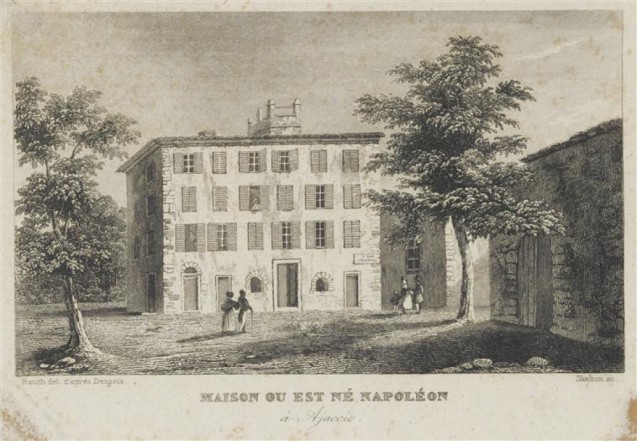Many opponents of Napoleon (sometimes French writers, sometimes British pamphleteers) doubted his “French nationality”, both during and after his reign. Perhaps the most celebrated doubter was Chateaubriand, who, in his 1814 pamphlet De Buonaparte et les Bourbons (published simultaneously in English translation in London under the title On Buonaparte and the Bourbons: and the necessity of rallying around our legitimate princes for the safety of France and of Europe), proposed that the ex-Emperor had falsified his birth date and that he had actually been born in 1768, at a time when Corsica was not yet French.
That great writer and his followers were however wrong on two key points.
The first is that Napoleon was indeed born in 1769. It is true we do not have his birth certificate, but we do have his baptism records (21 July 1771) which attest that 15 August 1769, was Napoleon’s birthday. Furthermore, Charles Bonaparte’s “journal” notes the birth on 15 August 1769. It is true that Napoleon very occasionally used the papers of his brother Joseph (born in 1768) in order to add one year to his age, either to be able to take advantage of some administrative possibility or at his wedding with Josephine, wishing to reduce the six-year age gap between them (she was born in 1763). All the other documents from his youth testify to his emergence into the world on the “usual” date, such as, for example, the certificate sent by his parents to Monsieur d’Hozier de Sérigny, the judge responsible for examining his titles of nobility permitting him to enter the Brienne Military School (1779) or the 1785 report sent to Louis XVI on pupils at the military school in Paris where, beside Napoleon’s name, the words “born on 15 August 1769” also appear.
Chateaubriand’s second mistake? The concept of “nationality”, such as it was understood during and after the Revolution, had no meaning at the time of Napoleon’s birth. In those days, a person was a “subject” of a monarch, not citizen of a nation. What is more, via the treaty of Versailles, dated 15 May 1768, one year before Napoleon’s birth, the Republic of Genoa had ceded its rights to Corsica to the King of France. The island was “attached” to the kingdom in August, three months later. Napoleon Bonaparte was therefore born well and truly a “subject of the King of France”.
And as if these arguments were not enough, I would like to add that during the ‘departementalisation’ of Corsica (1790), the Constituante decreed that all the island’s inhabitants were fully legally citizens of France.


